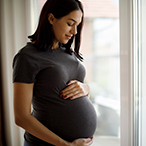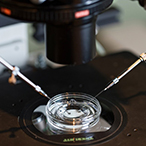Science Update: Development scores higher for infants born later in term pregnancy, NIH study suggests
On average, scores on development tests were lower for infants born earlier in the range of a term pregnancy—from 37 to 41 weeks—than for those born later in the range, suggests a study by researchers at the National Institutes of Health. The slight difference in scores, first apparent at eight months, persisted through age seven. The findings may have implications for current practice guidelines recommending induction of labor for non-medical reasons at the 39th week of pregnancy.




















 BACK TO TOP
BACK TO TOP